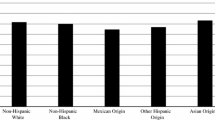Abstract
To examine the impact of college researchershave used a variety of measures of learning and fairlycomparable results have been obtained. This studyundertakes a direct comparison of three learningindicators: college grade-point average, student reportedgrowth (Verbal and Quantitative), and GRE scores(Verbal, Quantitative, and Composite). The same set ofindependent variables was regressed onto each dependent measure using a national sample of 2,289students. Substantive interpretations are presented andcomparisons are made for paired regressions usingalternate indicators. This paper provides evidencesuggesting that (1) student-reported cognitive growthsurvey items have a modest relative validity; (2) theattenuation associated with the use of residual gainscores does not invalidate their use; and (3) comparable results are obtained when using the college GPAand standardized test scores. It is concluded that thealternate measures can be used as proxies for moredirect measures of learning.
Similar content being viewed by others
REFERENCES
Anaya, G. (1990). Toward the enhancement of learning outcomes: Methods and learning principles revisited. UCLA Journal of Education3: 13±25.
Anaya, G. (1992). Cognitive development among college undergraduates. Unpublished doctoral dissertation, University of California, Los Angeles.
Anaya, G. (1996). College experiences and student learning: The impact of academic and nonacademic activities. Journal of College Student Development37(6): 1±12.
Angoff, W. H., and Johnson, E. G. (1990). The differential impact of curriculum on aptitude test scores. Journal of Educational Measurement27: 291±305.
Astin, A. W. (1984). Student involvement: A developmental theory for higher education. Journal of College Student Personnel22: 297±308.
Astin, A. W. (1991). Assessment for Excellence: The Philosophy and Practice of Assessment and Evaluation in Higher Education. New York: Macmillan.
Astin, A. W. (1993). What Matters in College: Four Critical Years Revisited. Sand Francisco: Jossey-Bass.
Baird, L. L. (1985). Value added: Using student gains as yardsticks of learning. In C. Adelman et al. (eds.), Performance and Judgment: Essays on Principles and Practice in the Assessment of College Student Learning. Washington, DC: Office of Educational Research and Improvement.
Bjork, R. A. (1979). Information-processing: Analysis of college teaching. Unpublished manuscript, University of California, Los Angeles.
Craik, F. I. M. (1981). Encoding and retrieval effects in human memory: A partial review. In A. D. Baddeley and J. Long (eds.), Attention and Performance IX. Hillsdale, NJ: Erlbaum.
Craik, F. I. M. and Lockhart, R. S. (1972). Levels of processing: A framework for memory research. Journal of Verbal Learning and Verbal Behavior11: 671±684.
Deutsch, M. (1949). A theory of cooperation and competition. Human Relations2: 129± 152.
Duran, R. P. (1983). Prediction of Hispanics' college achievement. In M. A. Olivas (ed.), Latino College Students(pp. 221±245). New York: Teachers College Press.
Educational Testing Service (1987). Guide to the Use of the Graduate Record Examinations Program, 1987 ± 88. Princeton, NJ: Educational Testing Service.
Ewell, P. T., and Jones, D. P. (1993). Actions matter: The case for indirect measures in assessing higher education' s progress on the national education goals. Journal of General Education42: 123±148.
Gray, M. W., and Taylor, A. (1989). Study factors influencing student perform ance in mathematics on the Florida college-level academic skills test (CLAST). Journal of Negro Education58: 531±543.
Harris, J. (1970). Gain scores on the CLEP General Examination and an overview of research. Paper presented at the annual meeting of the American Educational Research Association, Minneapolis.
Hartnett, R., and Centra, J. (1985). The effects of academic departments on student learning. Journal of Higher Education48: 491±507.
Higher Education Research Institute (1989). Follow-Up Survey. University of California, Los Angeles.
Johnson, D. W., Maruyama, G., Johnson, R., Nelson, D., and Skon, L. (1981). Effects of cooperative, competitive, and individualistic goal structures on achievement: A metaanalysis. Psychological Bulletin89: 47±62.
Jones, E. A., and Ratcliff, J. R. (1990). Is a core curriculum best for everybody? The effect of different patterns of coursework on the general education of high and low ability students. Paper presented at the annual meeting of the American Educational Research Association, Boston, Massachusetts.
Lambiotte, J. G., Dansereau, D. F., O'Donnell, A. M., Young, M. D., Skaggs, L. P., Hall, R. H., and Rocklin, T. R. (1987). Manipulating cooperative scripts for teaching and learning. Journal of Educational Psychology79: 424±430.
Mandler, J. M. (1978). A code in the node: The use of story schema in retrieval. Discourse Processes1: 14±35.
Pace, C. R. (1979). Measuring the Outcomes of College. San Francisco: Jossey-Bass.
Pace, C. R. (1984). Measuring the Quality of College Student Experiences. Higher Education Research Institute, Graduate School of Education, University of California, Los Angles.
Pascarella, E. T, and Terenzini, P. T. (1991). How College Affects Students. San Francisco: Jossey-Bass.
Pike, G. R. (1995). The relationship between self reports of college experiences and achievem ent test scores. Research in Higher Education36(1): 1±21.
Pike, G. R. (1996). Limitations of using students' self-reports of academic development as proxies for traditional achievement measures. Research in Higher Education37(1): 89±114.
Pike, G. R., and Phillippi, R. H. (1989). Generalizability of the differential coursework methodology: Relationships between self-reported coursework and performance on the ACT-COMP. Research in Higher Education30: 245±260.
Shuell, T. J. (1986). Cognitive conceptions of learning. Review of Educational Research56: 411±436.
Rights and permissions
About this article
Cite this article
Anaya, G. COLLEGE IMPACT ON STUDENT LEARNING: Comparing the Use of Self-Reported Gains, Standardized Test Scores, and College Grades. Research in Higher Education 40, 499–526 (1999). https://doi.org/10.1023/A:1018744326915
Issue Date:
DOI: https://doi.org/10.1023/A:1018744326915




